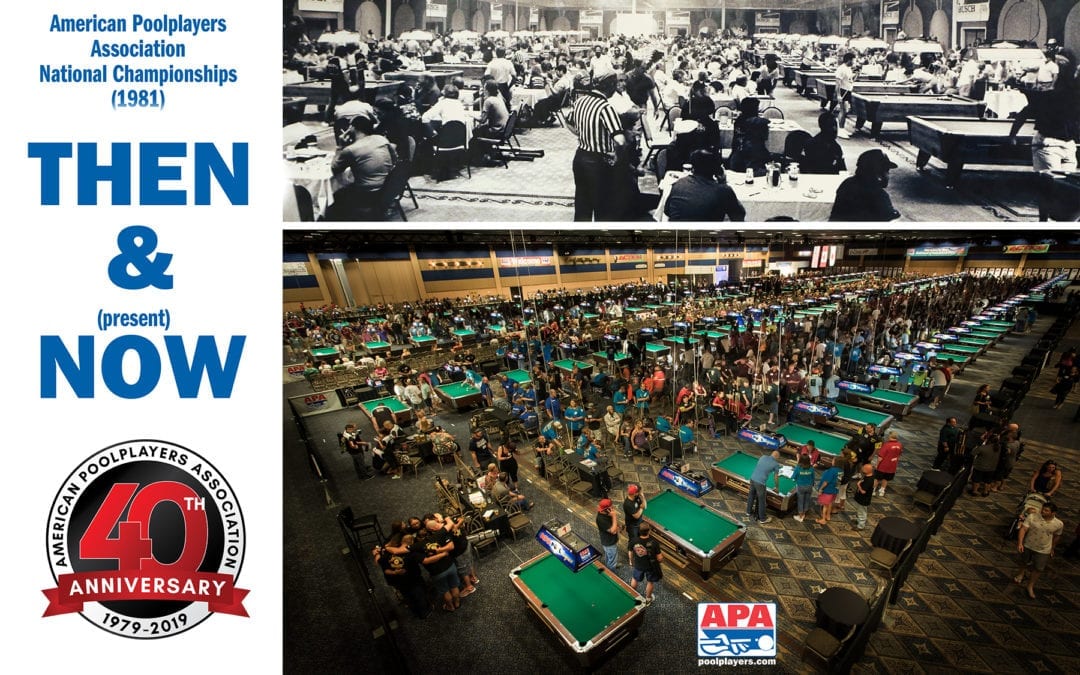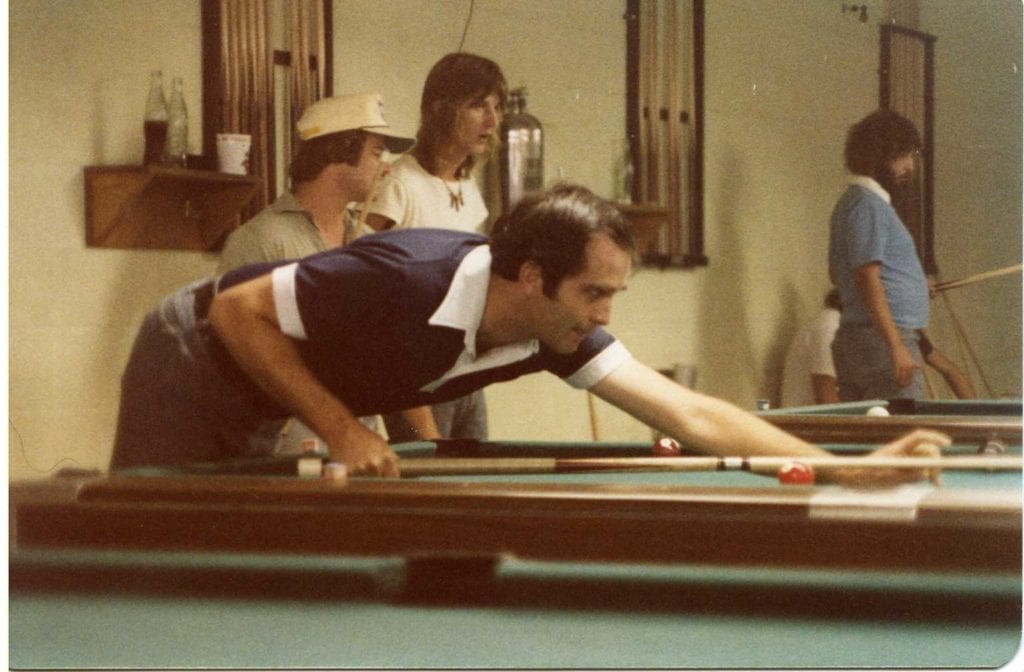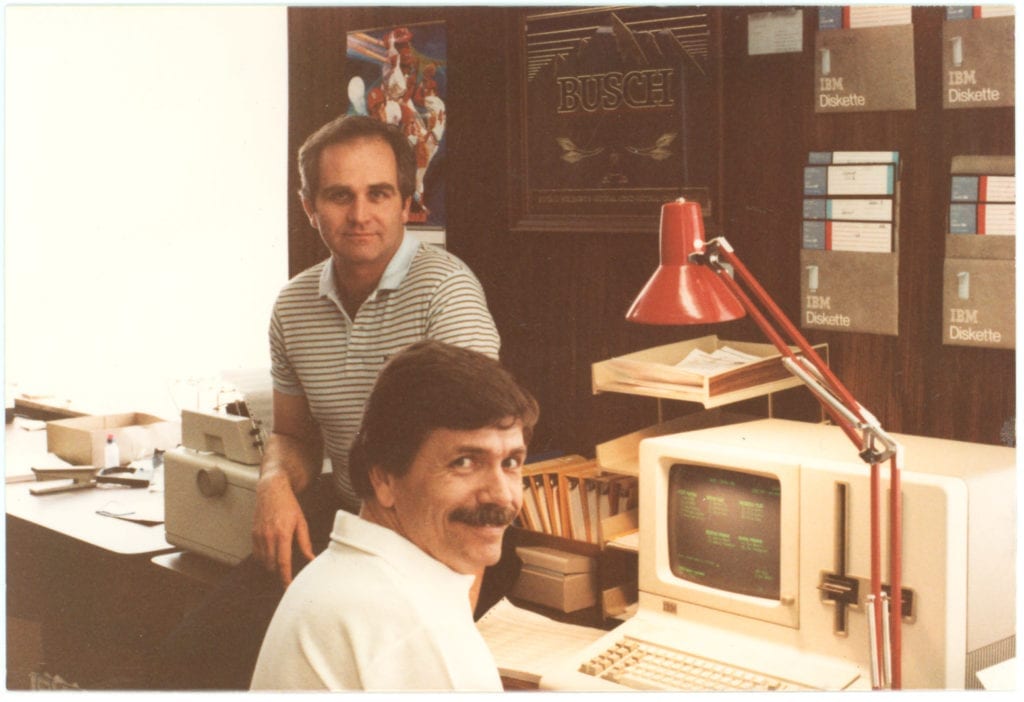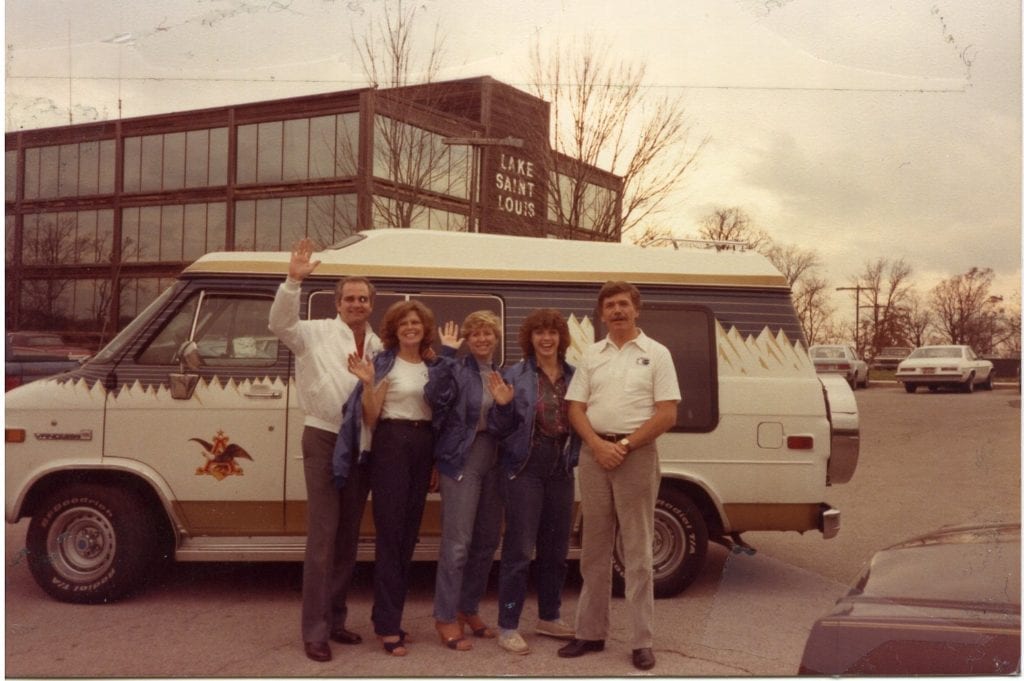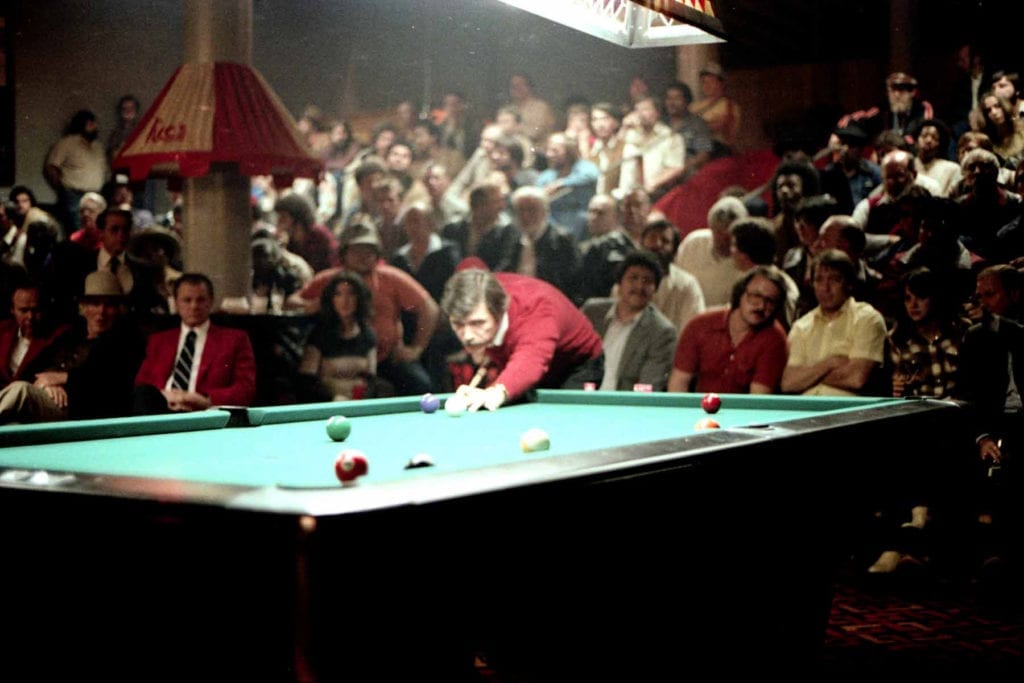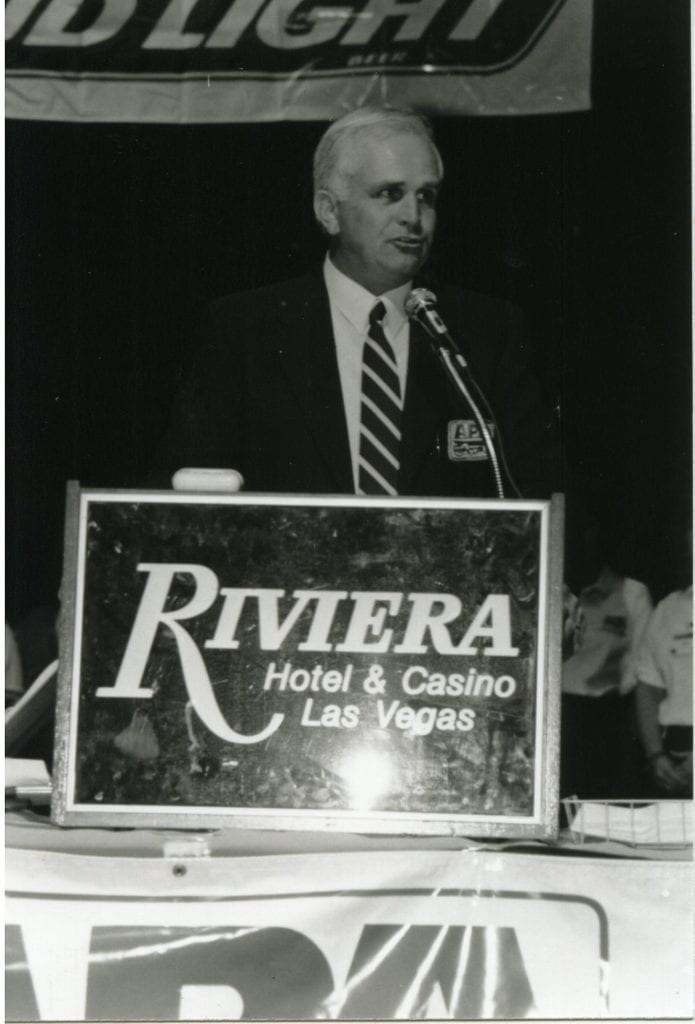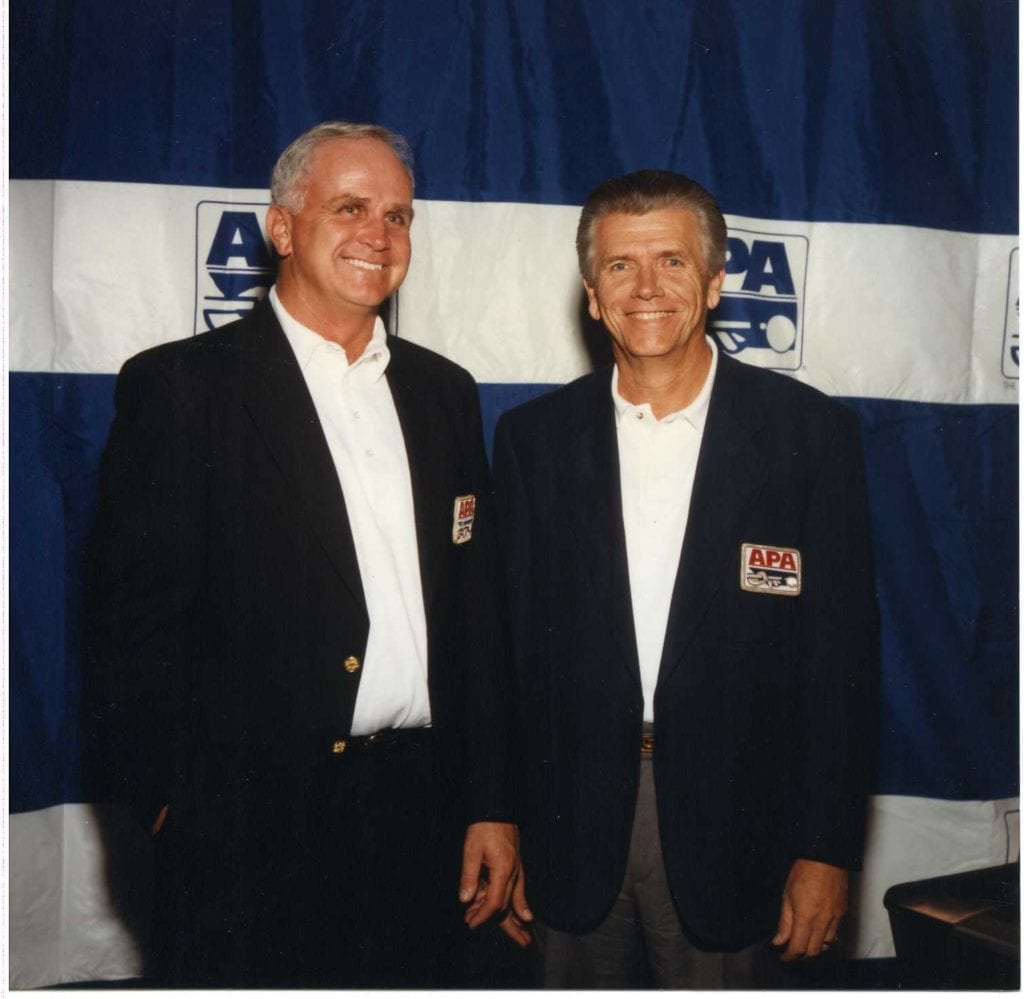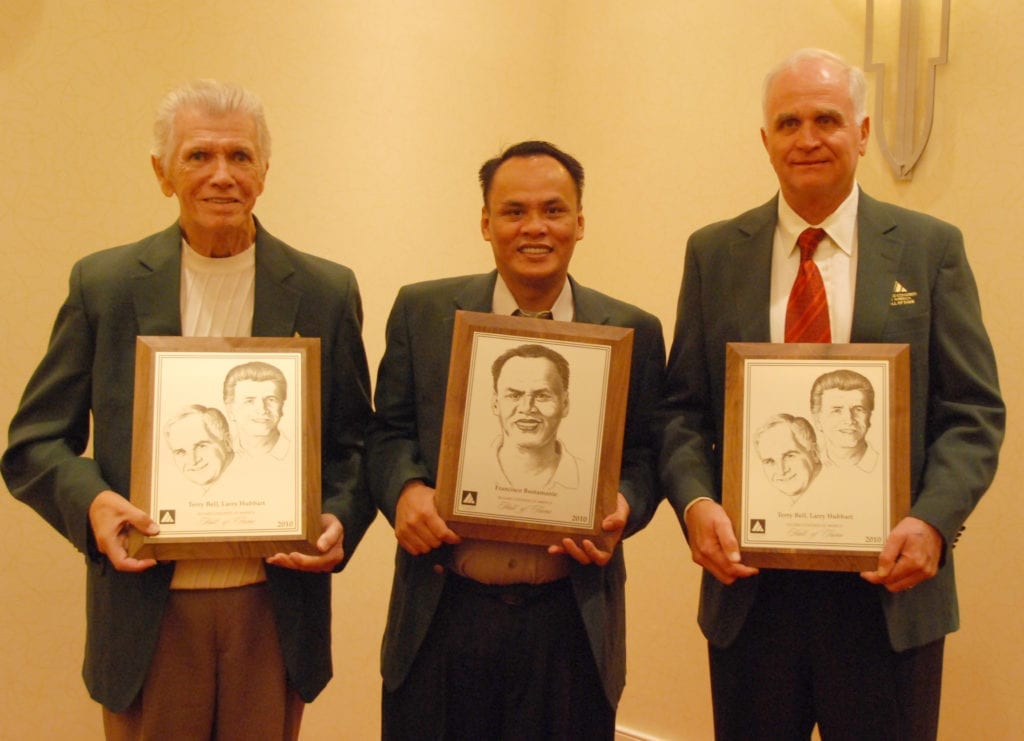APA celebrates its 40th Anniversary in 2019. For four decades, APA has been introducing people, who might otherwise never have picked up a cue stick, to the sport of pool. Newcomers and skilled sharpshooters alike, regardless of age, occupation, or even physical ability, have found commonality in their love of the game.
That passion has been shared hundreds of thousands of times over between mothers and daughters, father and sons, friends, co-workers and so on. The result has been something truly special, something much deeper than just the sport of pool.
I’m not sure words can truly define what APA means to so many people.
In my 19 years with the organization, I’ve personally met dozens of couples who met and fell in love through APA. I’ve witnessed marriage proposals first-hand at APA events, and seen newborn “APA babies” who were destined to become poolplayers, long before they might ever hold a cue stick.
I’ve had strangers recount stories to me about how APA quite literally saved their life – whether through the salvation they found through league camaraderie, or by being in the right place at the right time to have a fellow APA member come to their aid during a medical emergency.
More than anything, I’ve seen it bring people together in a way that seems less and less common in this day and age. Perhaps that’s the best way to define what truly makes this thing we call APA unique – it brings people from all walks of life together to make the world a little bit better place.
But none of that might have happened if not for two men, two former professional poolplayers, who shared a dream and a passion for making that dream a reality.
In the mid-70s, Terry Bell and Larry Hubbart were traveling the country playing pool. Commonly referred to as “road players” of the time, they went city to city trying to place high enough in tournaments to make a living. Terry once told me he drove more than a half million miles between the late 60s and late 70s. As you might expect, the lifestyle was far from glamorous.
As Terry would later explain, it was during this time the vision for APA began to emerge. As the players went from town to town, many people were playing the game, but they all played by different rules depending on where you played.
Then, in the late 70s, a group of investors called together a meeting that included virtually all of the top professional players of the era. The group was interested in further developing what had become an emerging pro tour. As the assembly of pro players debated how best to take pro pool to the next level, Bell raised his hand and suggested some dollars should be devoted towards the development of amateur pool. He further explained that, “pool could not have stars until it had fans.”
The reaction in the room was less than enthusiastic. As Terry would put it, “they looked at me like I was a stone cold idiot.”
But there was one man in the room who believed Bell had made a valid point. That man was widely considered one of the top two or three best players of the era; his name was Larry Hubbart.
Bell and Hubbart had known each other casually as fellow competitors for several years, but a true friendship would begin to blossom at that meeting.
Over the next few years, they would continue to discuss the essentials necessary to successfully grow the amateur side of the sport. One of the keys, of course, was the development of The Equalizer® handicap system which would allow for people of all skill levels to compete more equally. Formats, rules and a concept for a national championship would follow.
Funding was also a major consideration. To launch this ambitious project, they would need funding.
In 1979, a major break came for Bell and Hubbart when Anheuser-Busch came onboard as a major sponsor. Not only could they help with funding, but their distribution network offered league representatives introductions to bar, tavern and poolroom owners across the country where Busch products were sold.
But, funding and introductions wouldn’t be enough.
Bell and Hubbart also needed hungry and capable salespeople to build the leagues. They realized that if they were going to make APA a success, they would need to make these salespeople their business partners by way of franchising. After all, no one would have greater incentive to grow a business from the ground up than someone personally invested in the success of that business.
APA’s Busch Pool League officially launched in the summer of 1979. But, the rollout wasn’t filled with fireworks, cigars and champagne toasts. Instead, Bell and Hubbart had agreed to pour all their precious financial resources into the business.
For more than two years, APA didn’t make enough profit for the founders to write themselves a check. They lived off the income earned by their spouses, Olendia Bell and Nancy Hubbart. Unfortunately, their wives’ incomes weren’t enough; they needed to find an outside source of income to keep the company afloat.
What does a professional poolplayer do when they need to make money? They play pool.
The problem was, the business operations needed significant attention, and playing pool on the road took considerable time away from that. Bell and Hubbart would come to an agreement.
Hubbart, whom Bell firmly believed to be the better player, would go on the road playing pool. Bell would stay behind and continue to run the APA operations. The families would share Hubbart’s winnings equally.
The families did whatever they could to save money that could be invested in the organization. They rented apartments a mere 60 yards apart so they could save money carpooling. As the coupon clipping and penny pinching continued, slowly but surely, APA began to grow—location by location, player by player, team by team.
In 1981, the first APA National Championship was held in St. Louis, Mo., and offered a whopping prize fund of $12,000!
Now, if you’ve made it this far into this story, then you probably know most of the history from there, as you were likely part of it in some way, either as a member, League Operator, staff member or the one of the countless professional players or friends that have been part of the APA journey.
Eventually, that national championship would move from St. Louis to Las Vegas. A few years later, a second Vegas championship was added. A U.S. Amateur Championship, a Juniors Championship and dozens of regional APA competitions like the APA Southwest Challenge, would also be added along the way to satisfy our members thirst for more APA tournaments.
Today, just at APA’s two annual Vegas championships alone, participants can win a piece of more than $2 Million in prize money. Combine that with prizes offered on the local level, trips to Vegas, etc., and that figure easily doubles—quite the contrast to that initial $12,000 payout.
Prize money is great, but as you probably already know, being a part of APA is about more than prize money, trophies and trips to Vegas.
It’s about more than just pool.
It’s about being a part of something special, something unique and something that makes the world a better place.
Prior to his passing in 2013, Hubbart once recalled how early on he and Bell talked about how great it would be to someday have enough members to fill a professional sports stadium.
Today, that feat could be accomplished many times over by APA’s nearly quarter-million members.
In 2010, Bell and Hubbart were inducted into the Billiard’s Hall of Fame due in large part to what APA has meant to the billiard industry and the sport of pool. Later that year, Guinness World Records would name the APA National Team Championships as the World’s Largest Pool Tournament, a record that still stands today.
While there’s no doubt Bell and Hubbart firmly believed that their dream would one day become a reality, 40 years later it’s probably fair to say that neither could have ever fully imagined the positive impact APA would have on the countless lives it has touched.
For more stories like this:
By submitting this form, you are consenting to receive marketing emails from: . You can revoke your consent to receive emails at any time by using the SafeUnsubscribe® link, found at the bottom of every email. Emails are serviced by Constant Contact

